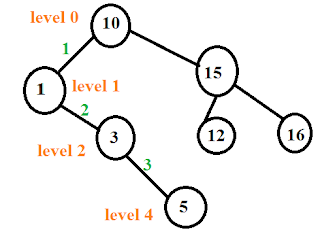41. Software does not wear-out in the traditional sense of the term, but software does tend to deteriorate as it evolves, because :
(1) Software suffers from exposure to hostile environments.(2) Defects are more likely to arise after software has been used often.
(3) Multiple change requests introduce errors in component interactions.
(4) Software spare parts become harder to order.
Correct Answer: (3) Multiple change requests introduce errors in component interactions.
42. Software re-engineering is concerned with :
(1) Re-constructing the original source code from the existing machine (low - level) code program and modifying it to make it more user - friendly.(2) Scrapping the source code of a software and re-writing it entirely from scratch.
(3) Re-organising and modifying existing software systems to make them more maintainable.
(4) Translating source code of an existing software to a new machine (low - level) language.
Correct Answer: (3) Re-organising and modifying existing software systems to make them more maintainable.
43. Which of the following is not a key issue stressed by an agile philosophy of software engineering ?
(1) The importance of self-organizing teams as well as communication and collaboration between team members and customers.(2) Recognition that change represents opportunity.
(3) Emphasis on rapid delivery of software that satisfies the customer.
(4) Having a separate testing phase after a build phase.
Correct Answer: (4) Having a separate testing phase after a build phase.
44. What is the normal order of activities in which traditional software testing is organized ?
(a) Integration Testing(b) System Testing
(c) Unit Testing
(d) Validation Testing
Code :
(1) (c), (a), (b), (d)
(2) (c), (a), (d), (b)
(3) (d), (c), (b), (a)
(4) (b), (d), (a), (c)
Correct Answer: (2) (c), (a), (d), (b)
45. Which of the following testing techniques ensures that the software product runs correctly after the changes during maintenance ?
(1) Path Testing(2) Integration Testing
(3) Unit Testing
(4) Regression Testing
Correct Answer: (4) Regression Testing
46. Which of the following Super Computers is the fastest Super Computer ?
(1) Sun-way TaihuLight(2) Titan
(3) Piz Daint
(4) Sequoia
Correct Answer: (1) Sun-way TaihuLight
47. Which of the following statements about ERP system is true ?
(1) Most ERP software implementations fully achieve seamless integration.(2) ERP software packages are themselves combinations of seperate applications for manufacturing, materials, resource planning, general ledger, human resources, procurement and order entry.
(3) Integration of ERP systems can be achieved in only one way.
(4) An ERP package implemented uniformly throughout an enterprise is likely to contain very flexible connections to allow charges and software variations.
Correct Answer: (2)
48. Which of the following is not a Clustering method ?
(1) K - Mean method(2) Self Organizing feature map method
(3) K - nearest neighbor method
(4) Agglomerative method
Correct Answer:(3) K - nearest neighbor method
49. Which of the given wireless technologies used in IoT, consumes the least amount of power ?
(1) Zigbee(2) Bluetooth
(3) Wi-Fi
(4) GSM/CDMA
Correct Answer: (2) Bluetooth
50. Which speed up could be achieved according to Amdahl’s Law for infinite number of processes if 5% of a program is sequential and the remaining part is ideally parallel ?
(1) Infinite(2) 5
(3) 20
(4) 50
Correct Answer: (3) 20





